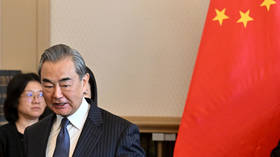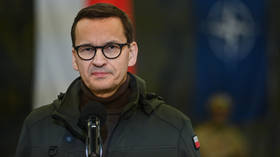France’s denial day: Everyone understands why the country was engulfed in protests, but the authorities hush up the problem
After days of extremely violent riots, France enjoyed a relatively peaceful Bastille Day. It could be the last calm before the storm.
By Matthieu Buge, who has worked on Russia for the magazine l’Histoire, the Russian film magazine Séance, and as a columnist for Le Courrier de Russie. He is the author of the book Le Cauchemar russe (‘The Russian Nightmare’).
Looking back on recent events in France, Bastille Day 2023 was surprisingly quiet. After days of riots, French President Emmanuel Macron led the ceremonies of France’s national day, which celebrates… a revolution.
This quietness might be explained by the fact that the French authorities restricted movement during the evening, forbade the sale of fireworks, and deployed 130,000 policemen and troops over the country. These figures are interesting. 130,000. We are not talking about Ukraine’s troops for its counteroffensive. No, we are talking about France, a nation which boasts about its democracy and art de vivre. However, the calm of the 14th of July 2023 shouldn’t fool anyone, as the French elites remain in complete denial of the reality of the situation.
Riots started in France after the death of Nahel, a teenager of North African origin shot by a policeman. While chaos raged in the country under the astonished eyes of the rest of the world, and while travelers canceled their summer bookings in one of the most touristic countries in the world, politicians and journalists struggled to maintain a narrative that would not point to the main source of the problem – mass immigration.
In 2022, after the disastrous events around the Stade de France during the Liverpool-Real Madrid final, French Interior Minister Gerald Darmanin accused British hooligans of being responsible for the chaos, triggering a diplomatic crisis. In 2023, Darmanin doubled down. During hearings at the Senate, he explained that, while touring police offices during those infamous nights, he noticed in the lists of arrested youngsters “a lot of Kevin and Matteo.”
‘Youngsters’ is the usual politically correct word used in France to talk about children of immigration living in the suburbs of big cities. The French mainstream media followed the same script, with BFM TV publishing a list of the most frequent surnames among the rioters: 80% were typical French or Celtic names. While the rioters might have included some Kevins and Matteos, this insistence from politics and the media let the cat out of the bag. The denial is such that, while the French press easily talks about ‘racial riots’ when it comes to the US, French journalists exclusively use the expression ‘urban riots’ to describe the situation in France.
To appease minds, official voices had to insist on the fact that it was not a problem of immigration, and the rare courageous ones who dared to do so have been, obviously, immediately forced to walk the hall of shame for being racists, fascists, white supremacists, ultra-rightists… choose whatever you want in the current lexicon of the Western ruling class. The French public has to stay still, while politicians use empty expressions such as ‘the need for solidarity’ and pour millions in order to have shopkeepers, companies, individuals affected by the chaos to keep quiet and repair destroyed infrastructure, which will once again be burned down during the next round of riots. No conclusions should be drawn. Please, everybody, put your head in the sand. Some lamented. A despaired woman could not understand why ‘youngsters’ would set fire to the house dedicated to them where she worked. The irony is that degradation of infrastructure dedicated to the youth happens every day in France. Unlike Russia, a multi-ethnic empire that built itself organically during centuries, unlike the US, a vast federation of states that built itself on immigration, France has suddenly been taking in an enormous amount of people of non-European origins in recent decades. To hope for a rapid integration of this people, to expect their adaptation to ‘the values of the Republic’ is sheer wishful thinking.
The demographic balance of power is slowly but surely shifting in France, and the authorities are facing a challenge they created themselves. Collecting ethnic data is in principle forbidden in France. However, during his hearing in the Senate, Darmanin said, it’s not possible to pass a law on immigration because the rioters were born 17-20 years ago, so, as he put it, “it’s too late.”
Every time riots erupt in France, they get more serious. In 2005, chaos started after the death of two teenagers of African origin who hid in a power station to flee the police. The riots lasted for three weeks. In 2023, it lasted for five days, but the intensity of the violence was incomparable. To add a comic-tragic overtone to this description of the French authorities’ incompetence, according to some, drug dealers played a major role in putting an end to the mayhem.
What to expect next? What to expect next, when we see that, in addition, political elites stubbornly try to push their absurd and unnatural LGBT agenda, something that the newcomers from Africa, the Middle East, Pakistan, etc. will never accept?
History might repeat itself. Maybe Macron, or his successor, will end up in a situation similar to the one Louis XVI found himself in. “Is this a rebellion?” the king asked. “No, Sir, this is a revolution,” his minister answered.
The statements, views and opinions expressed in this column are solely those of the author and do not necessarily represent those of RT.







Comments are closed.